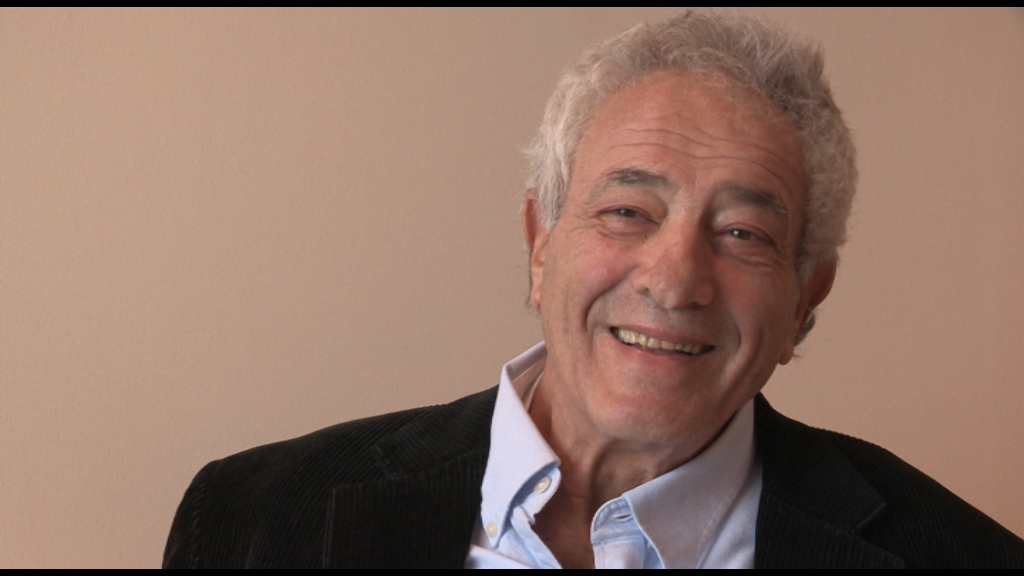NEXT STORY

Getting noticed by Private Eye
RELATED STORIES

NEXT STORY

Getting noticed by Private Eye
RELATED STORIES


|
Views | Duration | |
|---|---|---|---|
| 21. Don't ever sell out | 31 | 02:30 | |
| 22. Gaining experience in publishing | 22 | 01:51 | |
| 23. Making friends in the world of publishing | 30 | 03:18 | |
| 24. Introducing changes at Penguin Books | 32 | 04:08 | |
| 25. Getting noticed by Private Eye | 28 | 04:13 | |
| 26. Changing jobs | 20 | 05:22 | |
| 27. Joining Penguin Books | 22 | 01:20 | |
| 28. Publishing Philip Roth in paperback | 39 | 02:07 | |
| 29. Not yet a writer | 24 | 04:11 | |
| 30. My graduate life after Columbia and Oxford | 23 | 05:48 |


At Penguin, where I was for nearly 20 years, I had a great team. I did a lot of terrific things, I suppose, I don't know, I can't remember them all, but basically, we stayed together, we lost almost no one of our staff for those 19 years. And so I had great editors at Penguin, Peter Carson in particular, but that's on the adult side, and I had great children's editors as well on the Puffin side – Tony Lacey, Liz Attenborough, Philippa Milnes-Smith. You know, I… I got pretty good, I think, at picking people who could help the company and me. I am not especially modest. I think we did a great job, and I was thrilled to be the head of it, and I took Penguin in a lot of different areas. When I bought Frederick Warne, the company, I became the publisher of Beatrix Potter who had been under-published by the company we bought.
That took us into merchandising which is an aspect of publishing. We put Peter Rabbit on milk formula and I don't know what else, tablecloths and so on, but we also published… we tripled or quadrupled the number of Penguin Classics. There were about 400 Penguin Classics when I came to Penguin, there were about 1200 Penguin Classics when I left.
When we wanted to celebrate our 60th anniversary, I had found in Madrid some very small books, and they became the Penguin 60s [Classics], and we took them from our backlist and sold 29 million of these 60 books, which were sold for 60p, and they had, I think 60 pages in them, and that was our celebration of our Penguin 60s. Well we never thought we would make any money doing that, it was just a promotion, but in fact we sold 29 million of them! And after the first group of 60 titles there was a second group of 60 titles, and a third group of 60 titles, it became an industry. Well, that was my idea, but everybody in the company contributed to these books existing and to the marketing of them. I remember I went into Smiths and sold the first 60 books because people in the sales department didn't quite believe that you could sell books for 60p any more. So I went into Smiths, and… I don't know if it was my particular abilities, or maybe just that I was the head of Penguin and they were willing to see me, but I walked out with an order for one million books, and that was the beginning of that working.
But we each did what we were best at or what we could do and I think that's what makes great publishing companies, then and probably now, and probably forever, it's not one person. It may be one person who collects the people, and perhaps helps them to work together, but one-man bands are perhaps appropriate to tiny companies. Penguin was never a tiny company, it got much larger in my years there, but even when I came in '78 it was a good-sized company.
Peter Mayer (1936-2018) was an American independent publisher who was president of The Overlook Press/Peter Mayer Publishers, Inc, a New York-based publishing company he founded with his father in 1971. At the time of Overlook's founding, Mayer was head of Avon Books, a large New York-based paperback publisher. There, he successfully launched the trade paperback as a viable alternative to mass market and hardcover formats. From 1978 to 1996 he was CEO of Penguin Books, where he introduced a flexible style in editorial, marketing, and production. More recently, Mayer had financially revived both Ardis, a publisher of Russian literature in English, and Duckworth, an independent publishing house in the UK.
Title: Introducing changes at Penguin Books
Listeners: Christopher Sykes
Christopher Sykes is an independent documentary producer who has made a number of films about science and scientists for BBC TV, Channel Four, and PBS.
Tags: Penguin Books, Penguin 60s Classics
Duration: 4 minutes, 8 seconds
Date story recorded: September 2014-January 2015
Date story went live: 12 November 2015